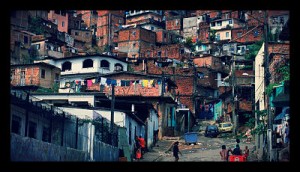Urbanization to Curb Poverty

According to a study done by the World Bank, urbanization has proven to be a key factor in eradicating poverty. The bank’s Global Monitoring Report 2013 offers statics that positively reflect urbanization in developing countries and in countries that have made the most progress in reaching the 2013 Millennium Development Goals.
The Global Monitoring Report says that countries with large population centers such as Southeast Asia or China have made large strides in reducing poverty in comparison to sub-Saharan Africa, where 70% of the population lives in rural areas. Infant mortality rates are also up to nine percentage points lower in urbanized areas than in rural cities and villages.
Urbanized areas create jobs and are generally better at service delivery such as access to sanitation, health care, education and electricity. Access to sanitation varies as much as thirty percent, 80 percent in urban areas to 50 percent in rural areas. Poverty is also significantly lower in urban areas at 11.5 percent versus the 29.5 percent in rural areas. In Africa, poverty in urban areas stands at 33 percent in urban areas to 47 percent in rural areas.
The next step to urbanizing is to ensure resources are available and to move forward at a steady pace to avoid slum areas. Some people favor state support and the finance of health and education systems while others support a combination of public and private financing. The World Bank encourages countries with oil and mineral resources to use the revenues to finance urbanization and health care systems. However, countries such as Uganda, that do not have an abundance of natural resources, prefer to use those revenues to improve the infrastructure in rural areas. According to Maria Kiwanuka, Uganda’s Minister of Finance, there are trade-offs. When the government uses the oil revenue to strengthen the infrastructure in rural areas, it allows the people living there to make more money to eventually contribute to the health care system.
While there are many different ways to fund health and social services and contribute to urbanization and the ultimate end of poverty, the assurance of resources to create the change is most important, says Joe Verbeek, the lead economist for the Global Monitoring Report. By improving the health and education services for people living in rural areas, it will make the transition easier and improve their job skills if they choose to migrate to a city.
– Kira Maixner
Source Voice of America
Photo World Bank
